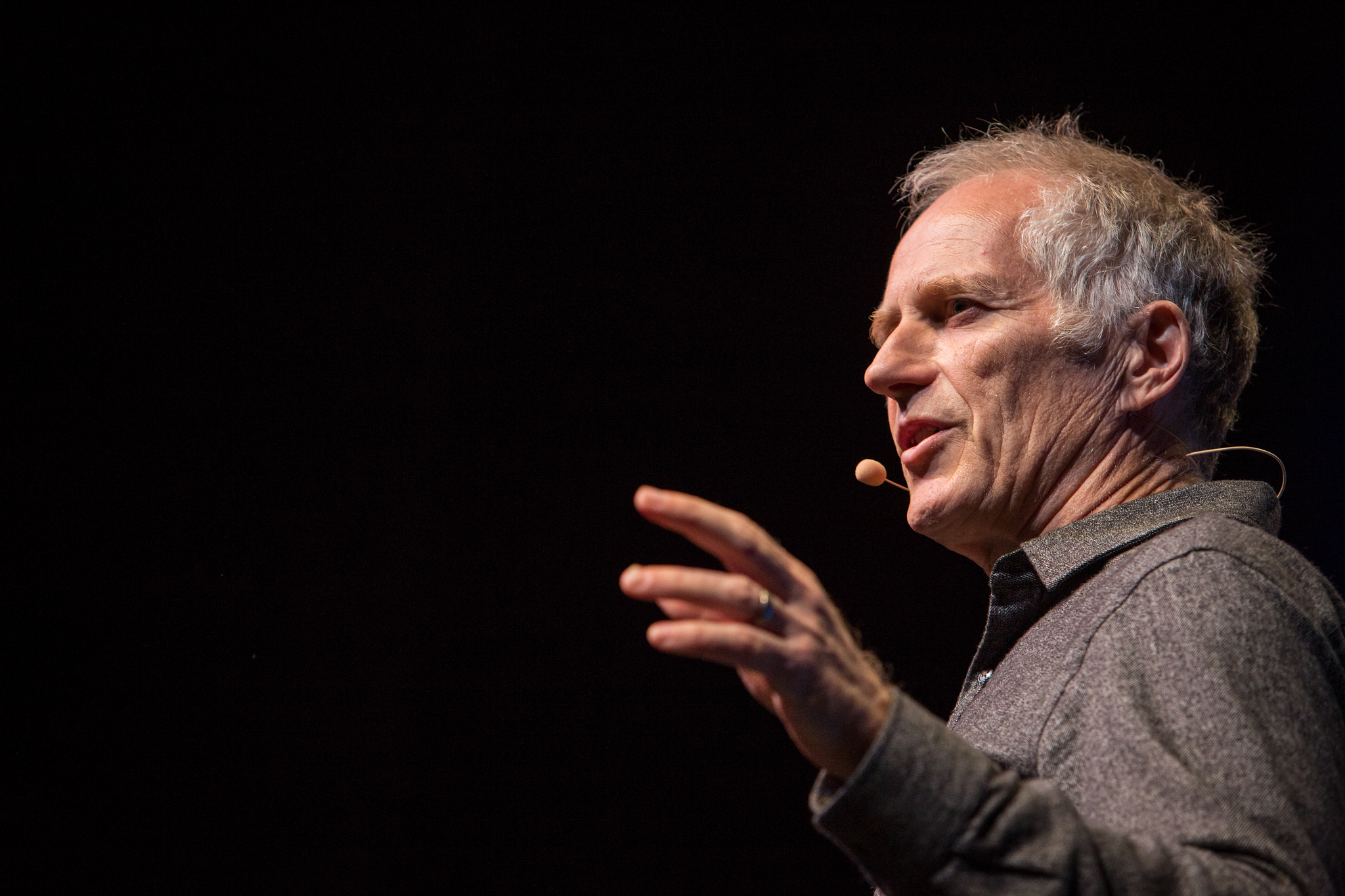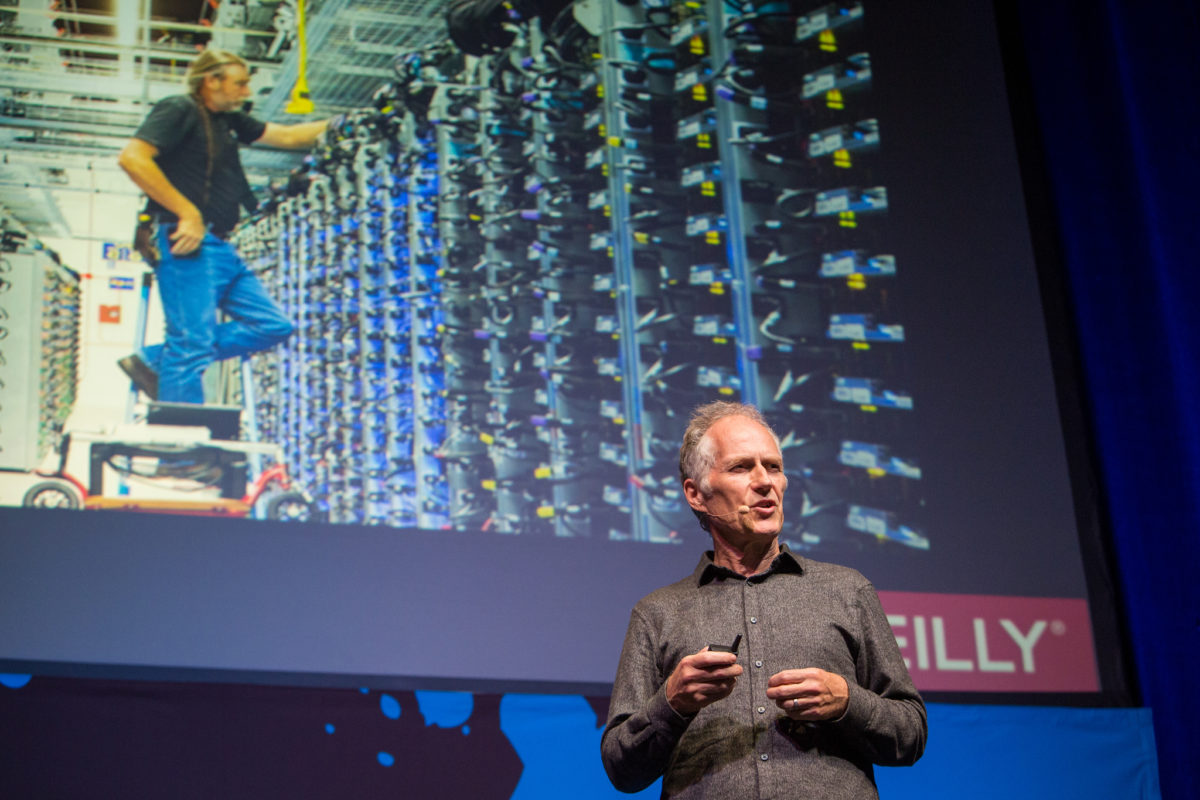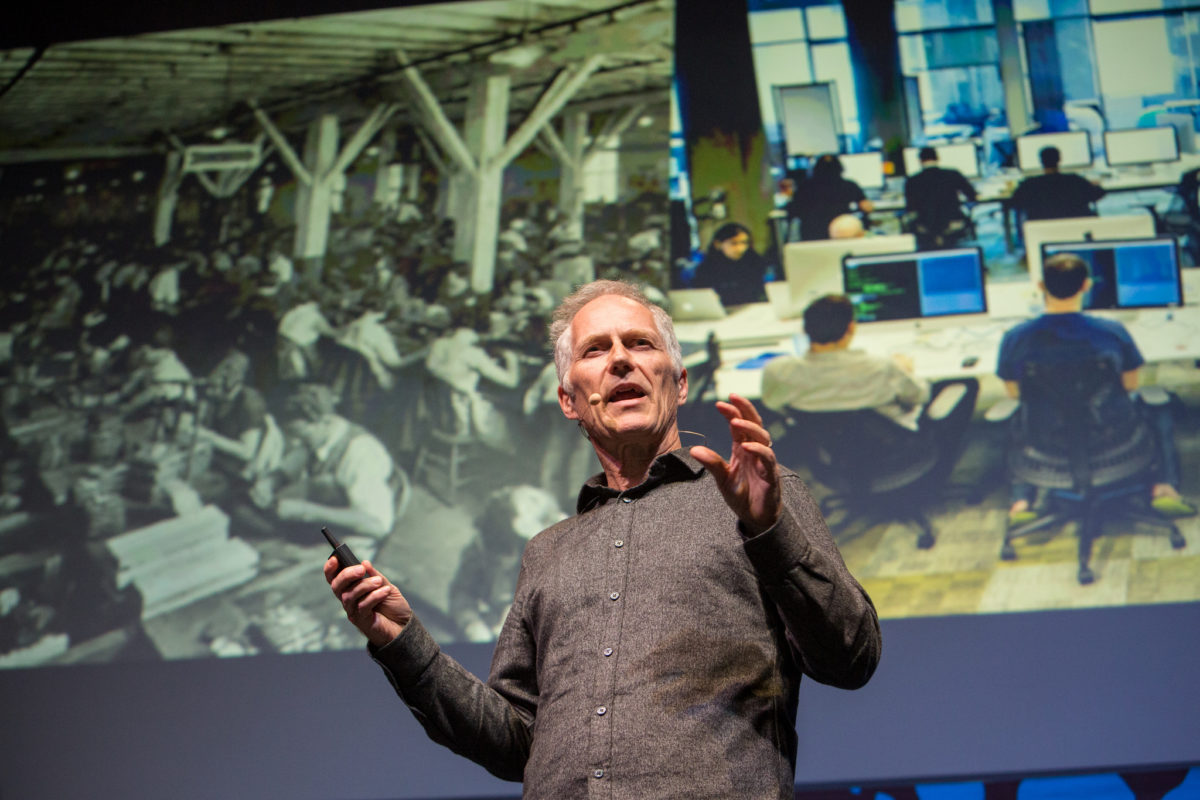WTF is the Future of Tech? An Interview with Tim O’Reilly

Forty years in tech has shaped Tim O’Reilly, CEO and founder of O’Reilly Media, into a man who constantly thinks about the future in the hopes of making a difference in the present.
The media mogul, futurist, and the man credited with creating the first ever commercial website (or web portal), started his media enterprise at a time when people were more likely to own a typewriter than a personal computer. He calls his new book, WTF: What’s the Future and Why It’s Up To Us, which he introduced in a keynote address at Lean Startup Conference, “an economic manifesto wrapped in a business book wrapped in a memoir of my forty years in the tech industry.” It urges entrepreneurs to consider how the technology they create can either elicit “astonishment and delight” or “dismay” in the future.
The media mogul, futurist, and the man credited with creating the first ever website (or web portal), started his media enterprise at a time when people were more likely to own a typewriter than a personal computer. Click To TweetUse Tech to Tell a New Story
“The fundamental thing that led me to write the book was seeing what was coming at us, that people were going to start seeing the dark side of tech, and that [the tech industry] was feeding it.”

Technology serves many different functions, but Tim is frustrated by “too many people who have bought into this idea that tech’s purpose is to do the same thing more efficiently.” Instead, he feels that “the fundamental job of entrepreneurs in tech is to rethink the world and tell a new story to change expectations.”
To this point Tim recommends that “the first question entrepreneurs should ask is ‘am I enabling people to do something that could not be done before?’” The companies that truly last over time do so because they enable something new, he says. For example, “Microsoft and the PC [personal computer] changed our relationship to computers,” Tim points out. The smartphones we now take for granted owe their existence to those early efforts.
The fundamental job of entrepreneurs in tech is to rethink the world and tell a new story to change expectations. Click To TweetWith Great Tech, Comes Great Responsibility
In order to become enablers, Tim urges entrepreneurs to prioritize meaning and innovation over money. He is the first to admit he’s critical of “the Silicon Valley financing scene,” which he says has a tendency to “reward the wrong things and creates companies that are short sighted, short term, and not looking to become real businesses, just to get financed.” He compares these kinds of startups to Hollywood producers looking to get funded with the hopes of making a hit movie with a big payout rather than building a career.
“It’s really important to understand what it means to build a real business,” Tim says. “You have a real responsibility if you succeed to enable an economy for other people.”
In fact, the tech industry has a great deal of power to either innovate for the greater good or play into this larger narrative of fear that caused him to write this book in the first place, Tim says.

“We have a system that encourages companies to increase profits regardless of the cost,” Tim says. This, along with the rise of new kinds of on-demand technologies and artificial intelligence (AI) that also threaten human labor and other social nets, should inspire entrepreneurs to “deeply rethink how society works.”
He believes in the power of technology to make new things possible, and that this is where intrapreneurs can make valuable contributions to society. However it has to be done with the long view in mind, something he gives Lean Startup founder Eric Ries credit for doing with his books and work. “Eric is trying to put long term thinking back into play,” Tim says.
“It’s really important to understand what it means to build a real business. You have a real responsibility if you succeed to enable an economy for other people.” -@timoreilly Click To TweetA Lean Startup Economy
It’s not just the private sector that has to think about its role in shaping the future, however. Tim is always looking for ways to introduce Lean Startup in government and public policy because the lessons of “iterative learning” that are key to the tech industry “also apply to other businesses and government.” Lean Startup at the government level could “determine which policies will actually work. You can’t just say this is the magic policy, which someone comes up with in a vacuum, applies for thirty years, and is surprised when it doesn’t work,” Tim says. “Innovation as an ongoing process needs to be done across our society.”
“We need to develop the next step, which is what will the startup economy look like? What does it mean to apply Lean Startup to the economy, continually experimenting with the rules of the game and trying to improve?”
He knows this is not easy to do, but he’s eternally optimistic. History has shown, Tim says, “that we can make better choices.”
The crux of his book is a “call to action” to entrepreneurs and intrapreneurs alike “to rethink and rewrite rules of society in profound ways in response to technology.”
Thank you to Jordan Rosenfeld for contributing this piece. If you want to bring the entrepreneurial spirit to your large organization, Lean Startup Company’s Education Program can help.
